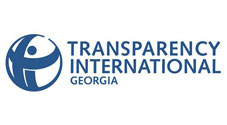
TI publishes a report on the performance of the Parliament in 2019
By Khatia Bzhalava
Tuesday, August 4
Transparency International – Georgia (TI) publishes a report on the study of assessing the work of Parliament from January 1st, 2019 to December 31st, 2019, within the framework of monitoring of the Parliament.
According to TI, 2019 was a politically active and tense year. Throughout the year, several significant events resulted in protests and the parliamentary proceedings were carried out against this background. IT states that there were changes in the composition of the Parliament due to political conflicts. A few PMs left the parliamentary majority, which according to the rules of procedure, has led to the decomposition of the minority. Moreover, IT notes in the report that the parliamentary opposition actively used the boycott regime during the autumn session.
The study identified several positive tendencies during the reporting period such as an increased figure of MPs using their right of initiation and decrease in some fast-track initiatives. Also, there have been more remarks made on bills by committees and MPs.
The study showed that the new rules of procedure had a positive impact on strengthening the mechanisms of parliamentary control, new rules have been established and the existing ones have been improved; the new mechanism of parliamentary control has entered into force, including interpellation (5 times) and ministerial hour (9 times), with MPs actively attending plenary sessions and answering the questions; exercising the right of using the deputy questions has risen significantly in comparison to the previous years (41 MPs sent 925 written questions in 2019).
As TI notes, 21 themed groups have been created, which prepare reports and presentations. The mechanism for summoning officials by parliamentary fractions has improved and become more effective. Also, the figure of absences on the plenary session has diminished (1200 cases of justified absence from the plenary session in 2019) and according to the mechanism of accountability for absences, MPs have received salary reduction due to unjustified absence.
The survey has identified the challenges occurring during the reporting period such as the increased tendency of extension of dates of discussion of draft laws. It is also noted that the Gender Equality Council has not discussed legislative amendments in gender perspective and the council does not have a chairperson to this day.
According to TI, the limited periodicity of interpellation contains risks that the raised issue might lose its relevance by the time of carrying out interpellation; despite the notable simplification of the process of establishing temporary investigation commission, the commission was never created; the Parliament did not implement the monitoring of legislative action plan presented by the government.
The study showed that despite the adoption of the Code of Ethics, the composition of the Ethics Council has not been established yet, which is a threat to the importance of the code and its execution. Also, according to the TI, acquiring accurate information on time from parliamentary committees and bureaus of majoritarian MPs is still a challenge.
TI stresses the issues of transparency and notes that the citizens, as well as the journalists and even MPs, have been repeatedly denied entry to the Parliament building, also, it is noted that NGOs were not allowed to attend the presentation of Parliament’s annual report either, therefore “the question of gaining entry to the building of the Parliament and participating in the sittings remains a subject of debate.”
Based on the study, TI named Rati Ionatamishvili, initiator of most of the draft laws as the most active MP; Anri Okhanashvili as the most active participant of plenary sessions from the parliamentary majority; Eka Beselia as the most active participant of plenary sessions from a faction outside the majority (opposition); Sergi Kapanadze as the author of most deputy questions and the Legal issues committee as the most active committee.


